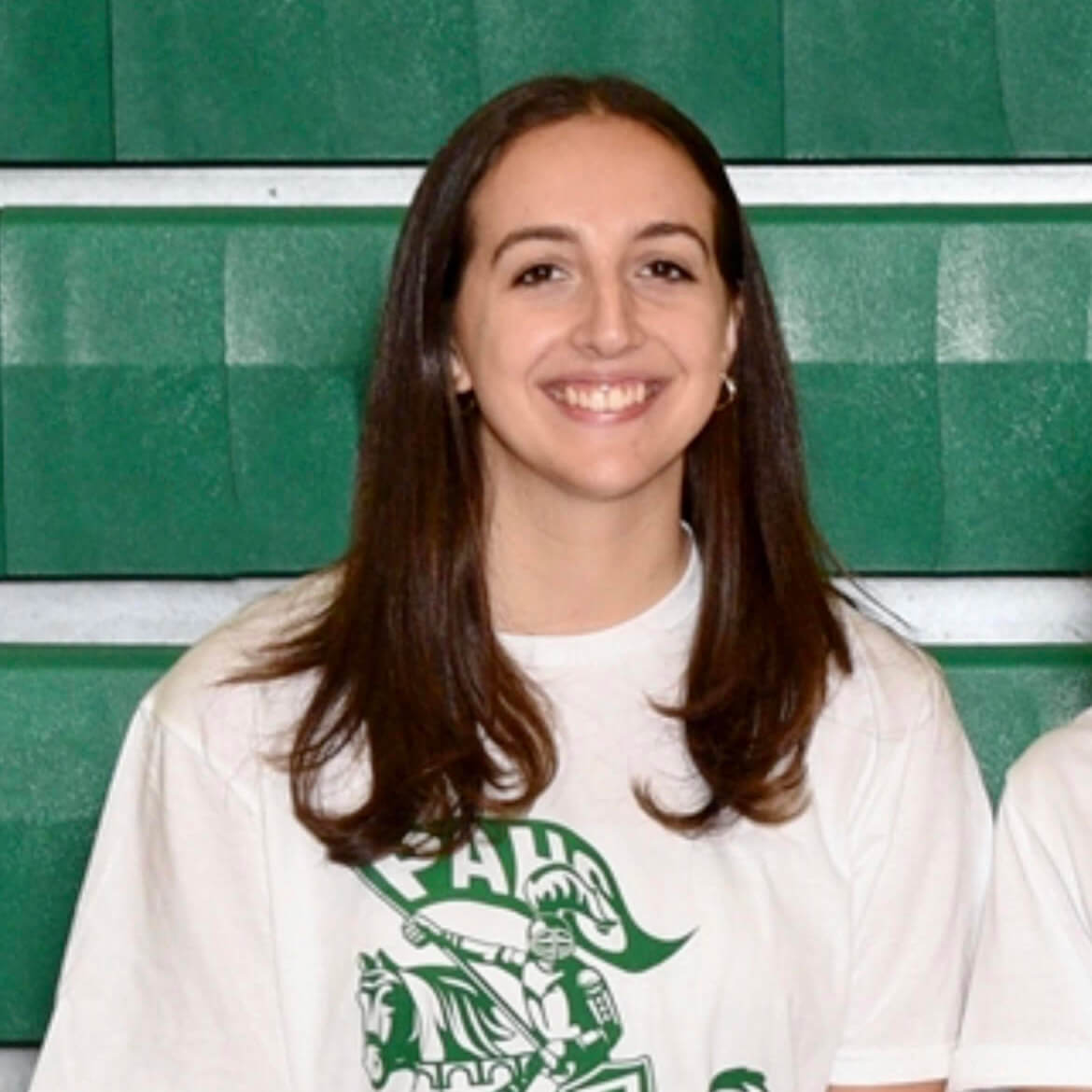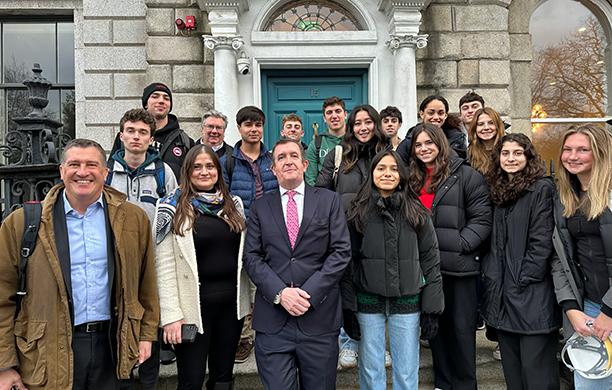In January 2023, Katrina Durrwachter '23G was identified as a “College of Education standout” among her peers. Post graduation, she was eager to translate the value of her Lehigh experience into practice.
“They did a lot of scenario learning at Lehigh,” she says. “I learned about how to be an attentive listener. Problem solving and thinking critically and creatively is the key, and Lehigh’s program teaches you that at its core.”
Career Pivot
She came to Lehigh for her graduate degree after earning a BS in rehabilitation science from the University of Pittsburgh. The former athlete set out to help people overcome physical obstacles, but she was soon called to work in a role that explored the whole person.
“In physical therapy, you help people in a different way for a shorter period of time,” Durrwachter explains. As a school counselor, she is able to see the whole picture and help students grow during times when they are challenged and when they are successful. “I like getting to know people and building long-term relationships. You get to know the siblings and families as well as insights from the teachers and administrators on their behavior, academics, and family life.”

Day One
In August 2023, Durrwachter began her career as a school counselor at Pen Argyl Area High School. With intern, practicum, and graduate assistant experience under her belt, she felt prepared for the challenge but learned quickly to expect the unexpected.
“People told me, ‘You will never know what’s going to happen,’ but to actually be in it is a different thing. I could never have prepared for how unpredictable a day in the life of a school counselor could be.” She says that the faculty during her time at Lehigh helped her feel confident in her abilities, and her peers at Pen Argyl offer their own experience and a trusted space to consider new approaches. She notes that even her more tenured colleagues frequently face things they’ve never encountered before; it's the nature of the job.
“My mentors have been very helpful in guiding me to think on my feet through on-the-job learning.”
Learning to Live in the Gray Areas
Knowing there won’t always be a black and white answer, Durrwachter remains open minded and says balancing empathy and problem solving is where she has found the most success. By maintaining an even temperament and composure, she is learning how to help her students and their caregivers when a quick solution isn’t possible.
“A lot of times parents are frustrated when you can’t deliver in the way they want. You have to show them that you aren’t being dismissive.” In these instances, she makes sure caregivers know she’s not in a rush and has the time to listen to them as well as the student. “Many times parents are trying to keep it together for the students and be strong, but they are going through it as well.”
Making a phone call versus sending an email, learning names of the family members, and finding something they can connect through are all ways Durrwachter builds trust and relationships in her role. “Building positive relationships and being empathetic isn’t that different from person to person,” she says. “You use the same skills whether it’s with a student, parent, or colleague.”
New Challenges
In a fast-paced world, there’s no debating that education is evolving quickly as well. Durrwachter wants to continue her learning to keep up with the changing needs of her students. She is serving students directly impacted by their pandemic experiences and a world saturated by social media.
“Students who are seniors now were in eighth grade when COVID started. They missed a crucial transition to high school. Academics took a hit not being in school, and socially they weren’t around other students, so phones became more relied upon. Social media access throughout the school day can be detrimental. It doesn’t necessarily cause mental health or social concerns, but it certainly can negatively impact students’ struggles.”
It Takes a Village
The team approach to student support is what stands out most to Durrwachter in her new career. She has learned that she isn’t expected to have all the answers but to build a network of support. Working together with colleagues, families, and the students who each bring their own insight helps find avenues for even the most challenging circumstances.
For Lehigh students preparing to enter this field, Durrwachter says to stay open minded. “Don’t be afraid to ask questions or work with your colleagues. You are part of a team working together. Remind yourself of that. If you ever feel overwhelmed, you are equipped to deal with it.”
Durrwachter has seen that taking the time to invest in positive relationships opens students’ eyes to new possibilities and encourages them to make progress in other areas of their lives. “Sometimes you have a student with a really difficult situation or there are students you don’t get off on the right foot with. But by continually showing up for them, you see the results. When they seek you out for assistance, you see that relationship has changed. You are making a difference and being a positive person in that student’s life.”


